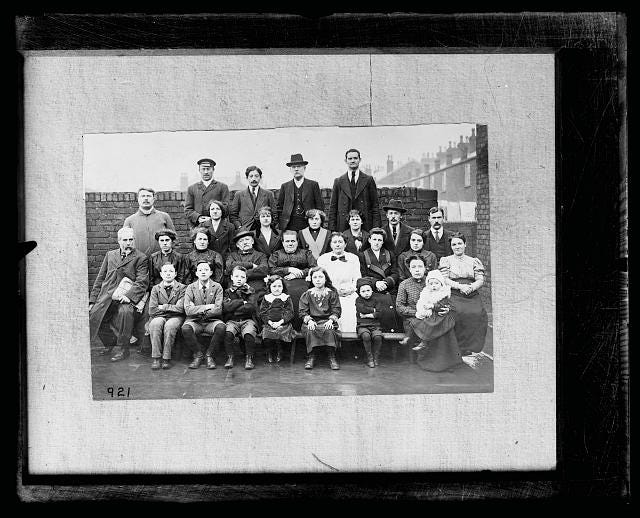Refugee History has developed over recent decades, looking at the enforced movement of people from their country as the result of catastrophes such as war, genocide, and environmental disaster.
In recent years an academic centre for Refugee History has been established which provides accessible resources for those of us interested in learning about refugee history globally. The historical study of refugees mostly accounts for broad movements of people and the national and international affairs which have come to bear upon them. It considers the causes of displacement through to refugee movement, settlement, relocation and all that this process entails.
In the British Isles we have refugees in many of our histories. People have been forcibly removed such as the expulsion of the Jewish population of England, the Highland Clearances and the Irish Famine. During our history Britain has also made refugees across the world. For instance, the refugee crisis following the partition of India in 1947.
Britain itself has a long, if chequered, tradition of accepting refugees from other countries. We have had refugees before the modern term ‘refugee’ even existed. In the late seventeenth century French Huguenots, Protestants exiled from their land, fled in large numbers to Britain. We can see the influence of these people in many of our towns and cities. England's 'First Refugees' | History Today
Refugees have continued to come to Britain into modern times. For example, Ugandan Asian, Vietnamese and Kurdish people arrived during the 1970s and 80s. For an excellent overview of the history of refugees in the UK up to the millennium then see this timeline: 400 Years of Refugee Movement to the UK
The sources we can use to study refugees are rich. Of course, in so many respects refugee histories are intertwined with those of the wider community. We find them in all the places we would otherwise expect such as in censuses, parish records and civil registration.
Belgian Refugees in a Chapel School, Hazel Grove, Stockport, England, wearing clothes sent from America. [1917] Photograph. Retrieved from the Library of Congress, www.loc.gov/item/2017676936/.
In addition to more general sources refugees in Britain have often established their own groups, societies and organisations which can be searched for themselves as historic entities. Often communities have groups and heritage bodies that survive to the present day. For example, many Jewish people fled to Britain from eastern Europe during the Pogroms of the Russian Empire. They settled in a variety of places such as the East End of London and Glasgow. The plight of Jewish refugees in the twentieth century was again recognised by some who offered sanctuary in Britain in the Second World War. For those researching the Jewish populations of Scotland a visit to the Jewish Archives Centre is invaluable: SJAC – The Scottish Jewish Archives Centre
References and Resources:
There is a wealth of works on refugees with which to begin our studies, in addition to the specific resources mentioned throughout this post.
Books:
Robert Winder, Bloody Foreigners: The Story of Immigration to Britain (2004)
Panikos Panayi, An Immigration History of Britain: Multiculturalism Since 1800 (2010)
Peter Gatrell, The Making of the Modern Refugee (2013)
Websites:
The Heritage and Contributions of Refugees to the UK- a Credit to the Nation (refugeeweek.org.uk)




